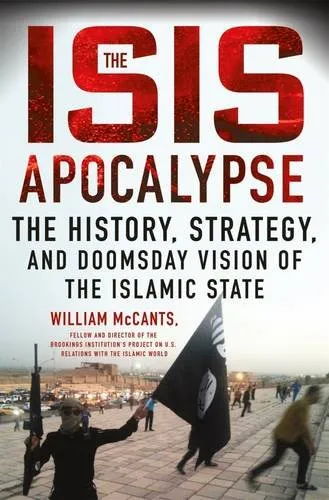Summary and Analysis of Sapiens: A Brief History of Humankind: Based on the Book by Yuval Noah Harari
4.0
Reviews from our users

You Can Ask your questions from this book's AI after Login
Each download or ask from book AI costs 2 points. To earn more free points, please visit the Points Guide Page and complete some valuable actions.Related Refrences:
Introduction
Welcome to the summary and analysis of Sapiens: A Brief History of Humankind, a groundbreaking work by Yuval Noah Harari that redefines the history of our species while exploring the very foundation of human existence. This summary aims to capture the essence of Harari's original masterpiece, offering readers a concise and comprehensive understanding without missing the critical insights that make the book so influential.
Harari's Sapiens, first published in 2011, dives deep into the story of Homo sapiens, tracing our evolution from insignificant foragers to the dominant species on Earth. It explores the cognitive, agricultural, and scientific revolutions that shaped the human experience, ultimately redefining our understanding of history, culture, and identity. Harari's approach is rich with historical, philosophical, and scientific analysis, making the book not just an account of history, but a mirror through which we question the complexities of human civilization and its future trajectory.
The summary you’re about to read distills the book’s most important themes, insights, and arguments into an accessible form. Whether you’re revisiting Sapiens or encountering it for the first time, this overview will provide valuable context and key takeaways to deepen your understanding of its profound ideas.
In addition to the detailed summary, this content is supplemented with critical sections on the key takeaways, famous quotes from the book, and an exploration of why this book remains significant today. Let’s uncover the fascinating journey of our species and explore Harari’s compelling vision of human history.
Detailed Summary of the Book
Harari begins by exploring the evolutionary background of Homo sapiens, emphasizing that our species emerged in East Africa around 300,000 years ago. The narrative emphasizes the cognitive revolution, roughly 70,000 years ago, as the moment when humans began to think and communicate in complex ways. This new ability to imagine, cooperate flexibly, and create myths marked the turning point in human history, enabling us to form large societies and dominate other species.
The book then transitions to the agricultural revolution, about 12,000 years ago, which forever altered human societies. Harari argues that while the domestication of plants and animals promised abundance, it came with a hidden cost: greater labor, social stratification, and the rise of inequality. He provocatively calls agriculture "history's biggest fraud," pointing out that it trapped humans in cycles of hard work and dependence.
The narrative continues into the modern era, highlighting the scientific revolution of the last 500 years. Harari explains how this period ushered in unprecedented technological and economic growth, fundamentally transforming societies and ecosystems. He links this revolution to capitalism, imperialism, and the industrial age, showing how these systems were interconnected in shaping the contemporary world.
Throughout Sapiens, Harari also delves into the role of ideologies, religions, and shared myths—such as money, nations, and corporations—that underpin the human experience. Finally, he examines humanity’s future in an age of genetic engineering and artificial intelligence, questioning what it means to be human in an era where technology could redefine life itself.
This summary captures the sharp intellect and wide-ranging insights of Harari’s work, offering readers a sweeping yet detailed look at our past, present, and possible futures.
Key Takeaways
- The cognitive revolution enabled humans to dominate the planet through communication, innovation, and shared myths.
- The agricultural revolution transformed societies, but it also introduced divisions, hierarchies, and long working hours.
- History is shaped by shared beliefs and cultural constructs, such as religion, money, and nation-states.
- The scientific revolution reshaped humanity’s understanding of the universe and fueled rapid technological progress.
- Humanity faces crucial existential questions as it navigates biotechnology and artificial intelligence in the 21st century.
Famous Quotes from the Book
Yuval Noah Harari’s Sapiens contains numerous memorable reflections. Here are a few quotes that encapsulate its essence:
- "There are no gods, no nations, no money, and no human rights, except in our collective imagination."
- "The Agricultural Revolution was history's biggest fraud."
- "Happiness does not really depend on objective conditions of either wealth, health, or even community. Rather, it depends on the correlation between objective conditions and subjective expectations."
- "Biologists have since debunked the idea of a hierarchical pyramid of life, and categorically rejected the claim that Homo sapiens are the apex of creation."
- "Is there anything more dangerous than dissatisfied and irresponsible gods who don’t know what they want?"
Why This Book Matters
Sapiens: A Brief History of Humankind transcends the boundaries of history, anthropology, and science to present a truly holistic view of human civilization. By challenging widely held beliefs about progress, happiness, and identity, Harari forces readers to confront uncomfortable truths about their past and question the trajectory of their future.
The book’s insights are particularly valuable in the modern age, where rapid technological advancements and growing environmental challenges have placed humanity at a critical crossroads. Harari's thought-provoking narrative helps frame these changes within a historical context, providing readers with the tools to understand the dynamics shaping our world today.
Ultimately, Sapiens matters because it fosters a deeper awareness of the human condition, inviting readers to think critically about their place in a vast, complex history. It’s a book that compels us to ask, “Where have we come from, and where are we going?”
Free Direct Download
You Can Download this book after Login
Accessing books through legal platforms and public libraries not only supports the rights of authors and publishers but also contributes to the sustainability of reading culture. Before downloading, please take a moment to consider these options.
Find this book on other platforms:
WorldCat helps you find books in libraries worldwide.
See ratings, reviews, and discussions on Goodreads.
Find and buy rare or used books on AbeBooks.
1653
بازدید4.0
امتیاز0
نظر98%
رضایتReviews:
4.0
Based on 0 users review
Questions & Answers
Ask questions about this book or help others by answering
No questions yet. Be the first to ask!

![Mathematics and Its History [FIXED]](https://s3.refhub.ir/images/thumb/Mathematics_and_Its_History__FIXED_29231.webp)








